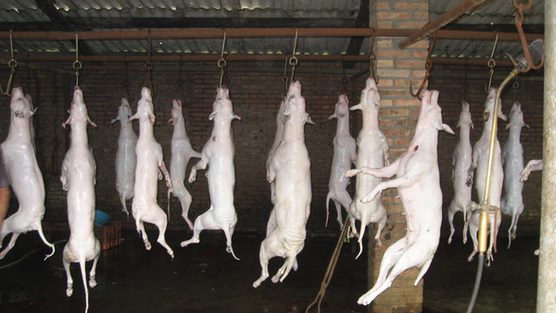In a small, nameless village, there existed a place that many would prefer to overlook. It was a factory where the air was thick with sorrow and the sounds of despair echoed against cold, brick walls. Here, lives were taken in silence, and the weight of unspoken stories hung heavily in the air.
Among the workers was a man named Amir. He had spent years in this grim establishment, finding himself trapped in a cycle of routine that felt both familiar and suffocating. Each day began with the same heavy heart, as he walked through the gates, knowing what awaited him inside.
Amir had grown up in a world filled with laughter and warmth. He remembered the days spent running through fields, playing with friends, and sharing meals with family. But life had changed drastically when circumstances forced him to take this job. The need to survive overshadowed his love for life, and he became a part of something he never wished to be.
As he worked, Amir often found himself lost in thought, reflecting on the innocence of the creatures he was surrounded by. Each one had a story, a life filled with potential. He often imagined them frolicking in open fields, basking in the sunlight. Yet here, they were reduced to mere commodities, stripped of their dignity.
One day, while performing his duties, Amir encountered a creature that caught his eye. It was small, trembling, and filled with a sense of fear that mirrored his own. The creature looked up at him with wide, pleading eyes, and in that moment, Amir felt a pang of regret and sorrow. He saw not just an animal, but a reflection of his own lost innocence.
That night, Amir couldn’t shake the image from his mind. He lay in bed, staring at the ceiling, wrestling with the weight of his choices. The laughter of his childhood echoed in his thoughts, reminding him of the joy he once felt. But now, that joy seemed distant and unattainable.
Days turned into weeks, and Amir’s inner turmoil intensified. He began to notice the camaraderie among his fellow workers, but it was tainted by the grim reality they faced. They joked and laughed, but deep down, Amir sensed their shared pain—a collective burden they carried silently.
One fateful morning, Amir made a decision. He couldn’t continue to be a part of this cycle of suffering. He realized that his own happiness was tied to the lives around him. With determination, he approached his supervisor and handed in his resignation.
As he walked away from the factory for the last time, a sense of liberation washed over him. The weight on his shoulders began to lift, and he felt a spark of hope reignite within him. He knew he had chosen a difficult path, but it was one that aligned with his values and beliefs.
In the following days, Amir sought ways to make a difference. He volunteered at local shelters, advocating for the voiceless and spreading awareness about compassion. He shared his story, hoping to inspire others to reconsider their choices and the impact they had on the world around them.
With each passing day, Amir found solace in the connections he formed with those who shared his vision. He witnessed the transformative power of kindness and empathy, not just for the creatures he fought for, but for himself as well. The laughter of children playing in the fields began to echo in his heart once more.
Years later, Amir stood in a vibrant community garden, where flowers bloomed and laughter filled the air. He had created a sanctuary for those in need—a place where compassion thrived and lives were celebrated. The memories of his past still lingered, but they were no longer a source of pain; they had become the catalyst for change.
In the end, Amir learned that true freedom lay not in escaping the past but in transforming it. Each life held value, and every act of kindness created ripples of hope that could change the world. Through his journey, he had not only reclaimed his own happiness but had also become a voice for the silent suffering around him, proving that love and compassion could triumph over despair.
